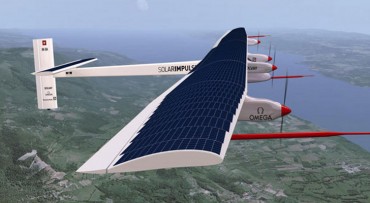Switching to solar energy is a big decision, and clashing information about alternative energy can drag you in separate directions until you’re stretched thin. Although the change may sound daunting, solar-powered homes have become increasingly popular in the past few years. The growing demand for solar panels drives a competitive market, meaning manufacturers are producing higher-quality panels at lower prices.
Because of innovative panel solutions and installation methods, going solar is easier than ever. Once you’ve cleared the smog of solar panel misconceptions, you can rest easy knowing that investing in solar panel kits will charge up your home without draining your bank account.
High cost
Although a solar panel system’s initial cost is more than a monthly energy bill, the amount of money saved by forgoing power companies to run your home is worth the investment. Your house will run independently of traditional utility businesses, and you’ll ultimately avoid rising energy costs. There are also tax incentives for homeowners who choose to go solar, giving you even more savings in the future.
Not enough space
Solar panels have a lower power-density than fossil fuels or coal, which traditionally run your local power grid. Because of their decreased density, you need more solar panels to generate the same energy levels as a traditional power grid. You may not have enough space to power your entire home, but solar power isn’t all-or-nothing. You can still connect to your local power grid while saving money using solar panels for partial energy. Even one solar panel installed on your roof will help you save money on your monthly electricity bill.
The installation will cause damage
People against solar panels are often under the impression that installation will damage their roofs. However, when installed correctly by reputable alternative energy companies, your house will be safe, sound, and energy-efficient. Additionally, if your roof is under warranty, you’ll be protected from damages.
Solar panels don’t last
Although early solar panel models were finicky and prone to breaking, newer, high-tech models are durable and storm-resistant. Electrical components lay underneath layers of industrial-grade glass, protecting them from weather conditions like hail or severe rain. Not only are new solar panels long-lasting and tough, but most manufacturers also offer warranties protecting against damage within the first ten years of purchase.
Panels will tank resale value
One of the most widespread misconceptions about solar panels is that they decrease release value, turning off homebuyers when deciding to list. However, modern panels are sleek and clean in design and offer lowered energy costs across the board. Additionally, panels allow you increased control over your energy consumption, which is an incentive for potential buyers.
Solar panels only work during sunny days
Solar power is an “intermittent energy source,” meaning it isn’t always producing energy. While it’s true panels only collect energy when the sun is shining, they can still power your home after the sun has set. Solar power systems connect to batteries that store excess energy to use when the panels are no longer soaking in the rays. Another concern is cloudy days inhibiting streams of light. Although clouds may drop production slightly, your system will still produce energy on the dreariest of days.
Solar panels require a lot of maintenance
Many unknowing individuals believe panels require mass amounts of maintenance to keep them running smoothly. While alternative energy sources will require some upkeep, the workload is light and sparse. Routine maintenance isn’t more than wiping panels down and clearing collected roof debris.
Although keeping your solar panels clean and clear helps them last longer and run efficiently, insuring them under warranty is advised for extra TLC. If your system does require additional care, it’s best to call in the experts, allowing them to work out the kinks.
Final thoughts
While solar energy has drawbacks, like initial cost, space, and maintenance, the environmental and economic advantages are worth the investment. Solar power engineering is making strides in innovative approaches and increased recycling efforts. Lower the cost of your energy bill and environmental impact by going solar.




